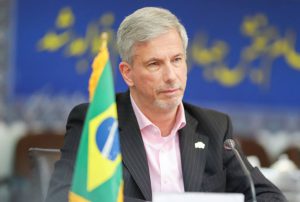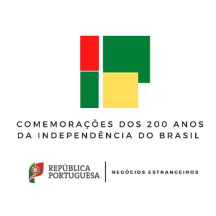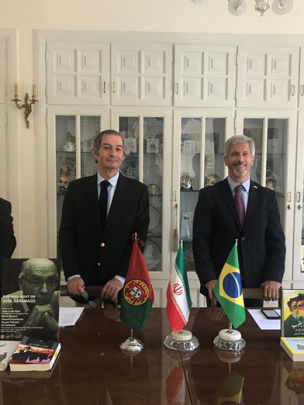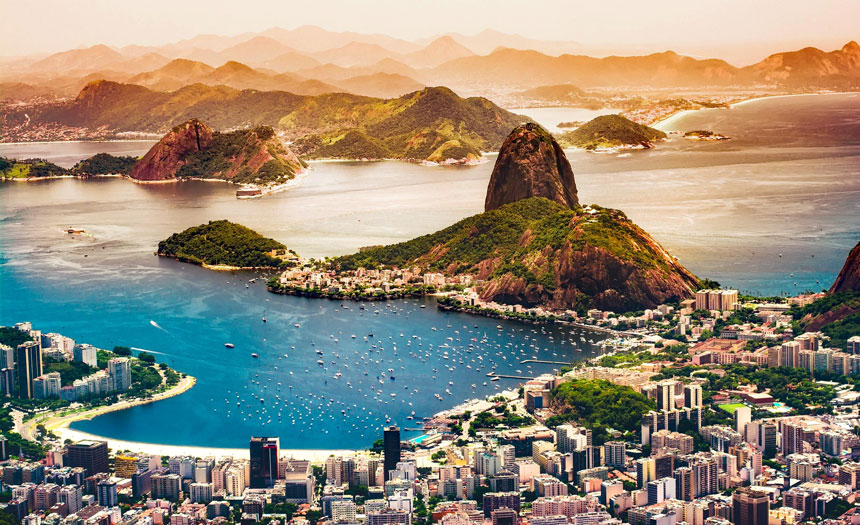By: Trends Editorial Team
 Thank you so much for giving Trends this additional exclusive interview.
Thank you so much for giving Trends this additional exclusive interview.
On the occasion of the 200th year anniversary of Brazil’s independence from Portugal, please tell our readers about the Portuguese point of view on the subject.
It is a celebration that, while Brazilian, is in a certain way shared. Brazil is viewed by the Portuguese people as a brother country and our Ministry of Foreign Affairs has created an allusive logo and a specific structure. It was D. Pedro I who proclaimed the independence of Brazil in 1822, and some years later he would become D. Pedro IV, King of Portugal. The birth of Brazil has very distinctive characteristics from that of other Latin American countries, which can be illustrated by the fact that Brazil’s vast territory remains ever since intact.
How did the independence movement start? Was it a peaceful transition or a violent one? How similar or different was it compared to other former Portuguese colonies in Africa and Asia?
I am not a historian. However, there is a consensus that the transfer of the Portuguese Royal Court to Brazil, and with it many of the elites, because of the Napoleonic invasions of Portugal was important. So was the establishment of Rio do Janeiro as the capital of the Portuguese Empire for a long period, until the return of D. João VI to Portugal. For many years, we saw the establishment of a natural sense of autonomy that evolved into independence. When Lisbon wanted to go back to the status quo that existed before, there was some confrontation, but fraternity ultimately won as at the end of the day, both dynasties were of the House of Bragança. The same smooth path did not happen in other independence processes in the 20th century, namely in Africa. There, long colonial wars happened and the independence of the five Portuguese-speaking African countries was only possible after the “Carnation Revolution” on the 25th of April 1974, that put an end to dictatorship and established democracy in Portugal. In our days, we also have a very close and friendly relationship with all those countries.
Brazil is the world’s largest Portuguese speaking nation. Which other nations speak Portuguese? How do you see this common language and cultural heritage impacting political and economic/trade relations between Portugal and these nations?
All countries with Portuguese as the official language are united in the Community of the Portuguese-Speaking Countries (CPLP), established in 1996. Apart from Brazil and Portugal, the founders were Angola, Cape Verde, GuineaBissau, Mozambique and São Tomé and Principe. Later, Timor-Leste entered because meanwhile it had become independent from Indonesia, and more recently EquatorialGuinea. In these 9 countries, and particularly in the first 8, as Equatorial-Guinea is a particular case, the common language is a major approximation factor. It is consequently a catalyst for business and trade areas, also covered by the CPLP. Still, there is a huge potential to explore. In the cultural field, let me give the example of the “Camões Prize”, which awards a Portuguese-speaking author annually, and has been granted to major writers of our countries since its introduction in 1989.
Laureates, and not being exhaustive, include the Angolan Pepetela, the Mozambican Mia Couto, the Brazilian João Cabral de Melo Neto, Chico Buarque and Raquel Queirós, or the Portuguese Miguel Torga, Sophia de Mello Breyner and, even before his Nobel Prize, José Saramago. Concrete cases of the close cultural interaction between Portugal and Brazil include cinema, where there are many co-productions, the last one being The Trip of Pedro based on the return of D. Pedro to Portugal. Musical examples include innumerable partnerships such as Caetano Veloso with Carminho, and Gal Costa with António Zambujo. I could go on and on with more examples.
The Portuguese Ambassador Mr. Carlos Costa Neves and The Brazilian
Ambassador Mr. Laudemar de Aguiar Neto
How have Brazil-Portugal relations evolved throughout the past two centuries? How close are the two nations today, both in terms of people-topeople as well as business-to-business connections?
There has always been a closeness between our two countries in political and diplomatic fields, which has never suffered. As an example, Portugal had the honor of hosting the Brazilian Ambassador Itamar Franco, who was formerly the President of Brazil, demonstrating the solid friendships between statesmen from both countries. Another example is Fernando Henrique Cardoso and Mário Soares, who wrote a book together. The contacts between our people are dense and profitable. In Brazil’s case since its independence, the Portuguese migration never stopped. Carmen Miranda, one of Brazil’s idols, was born in Marco de Canavezes in Portugal. The Brazilian migration to Portugal is more recent and started mainly after the establishment of democracy in my country.
Now, Brazilians are the largest community in Portugal and are present in different sectors. However, in How have Brazil-Portugal relations evolved throughout the past two centuries? How close are the two nations today, both in terms of people-to people as well as business-to-business connections?
There has always been a closeness between our two countries in political and diplomatic fields, which has never suffered. As an example, Portugal had the honor of hosting the Brazilian Ambassador Itamar Franco, who was formerly the President of Brazil, demonstrating the solid friendships between statesmen from both countries. Another example is Fernando Henrique Cardoso and Mário Soares, who wrote a book together. The contacts between our people are dense and profitable. In Brazil’s case since its independence, the Portuguese migration never stopped. Carmen Miranda, one of Brazil’s idols, was born in Marco de Canavezes in Portugal. The Brazilian migration to Portugal is more recent and started mainly after the establishment of democracy in my country. Now, Brazilians are the largest community in Portugal and are present in different sectors. However, in the economic sphere, we have not reached our potential, unlike the past, when there were huge investments from both sides such as telecommunications or air transportation. In those years, we were top investor partners, and I expect that in bonanza times, that we all desire, there is a new wave of expansion in our trade and investment, even if through triangulation outside our geography, like Africa or Europe.
To read more about Brazil’s relations please see this.
Are the two countries leveraging their access to different markets (Brazil in South America and Portugal in Europe) to each other’s advantage/benefit?
The creation of a common market in 1991, or the so-called MERCOSUL, in some South American countries including Brazil, has opened new perspectives and opportunities for the development of stronger economic relationships. Recently, the European Union signed a free trade agreement with MERCOSUL, which can be considered as of extreme relevance for Europe and South American countries and the deepening of trade and investment between Portugal and Brazil. Portugal has been a strong supporter of that agreement and I am confident that dynamics will work naturally when it enters into force. As you say in Iran, there are no limits to Portuguese-Brazilian relations. A very warm congratulations to my friend and colleague Laudemar de Aguiar Neto, with whom I have very close dialogue. Parabéns Brasil pelos 200 anos de Independência! We feel at home at each other’s house, and this is the best summary of our relations.





